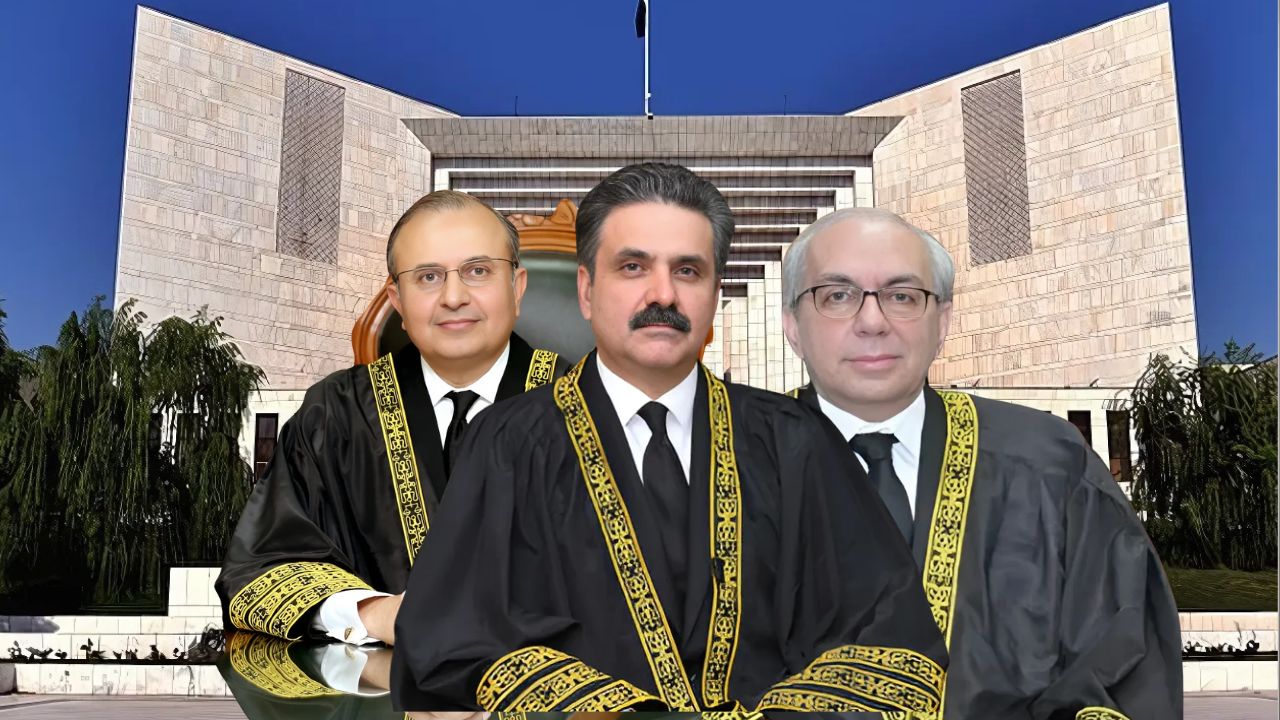In an interesting development, newly-sworn Chief Justice of Pakistan (CJP) Yahya Afridi has reconstituted the Practice and Procedure Committee of the Supreme Court (SC).
As per the details, CJP Afridi, on his first day as the top judge, brought back Justice Mansoor Ali Shah and Justice Munib Akhtar to the apex court committee that decides on bench formation and case fixation.
This means that no bench can be formed, or cases can be heard without their assent.
“In supersession of this court’s office order of even number dated 20-09-2024 and in the exercise of powers under section 2 (1) of the Supreme Court (Practice and Procedure Act) 2023 as amended by the Ordinance eight of 2024, the Hon’ble Chief Justice of Pakistan has been pleased to reconstitute the requisite committee,” read a notification issued by the SC on Saturday.
“The committee stands constituted as under: Justice Yahya Afridi, chief justice of Pakistan, Justice Mansoor Ali Shah, senior puisne judge and Justice Munib Akhtar,” it added.
Originally, the committee was supposed to consist of the three senior-most SC judges to deal with cases under Article 184(3) of the Constitution — often referred to as the apex court’s suo motu jurisdiction.
Following an ordinance last month to amend the Supreme Court (Practice and Procedure) Act 2023 — a law that aimed to curtail the chief justice’s powers — the top judge could now pick any SC judge to be the third member of the body.
Subsequently, Justice Isa had removed Justice Akhtar, the second in the line of seniority after the CJP, from the committee and made Justice Aminuddin Khan a part of it.
At the time, Justice Khan was fourth in the line of seniority after the CJP, while Justice Afridi was the third senior-most judge.
Speaking at the full court reference Friday, CJP Yahya had stressed that the “rule of law shall rule” and the principles of trichotomy of power shall prevail during the time ahead.
He indicated that the immediate focus would be on districts furthest away, on improving the justice delivery system and facilitating the cases of women, children, and the disabled.
During a hearing earlier this week, Justice Afridi said a separate category would be created for cases where any law had been challenged or needed constitutional interpretation — in line with the 26th Amendment that entailed the formation of constitutional benches.







